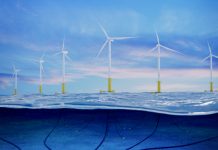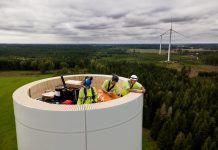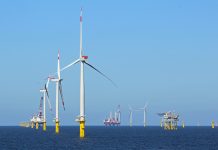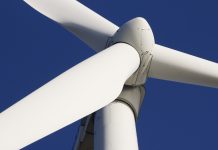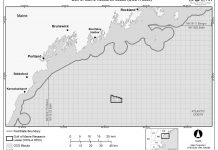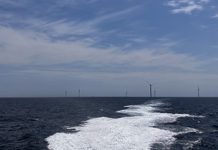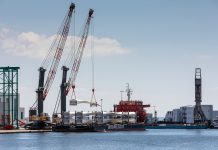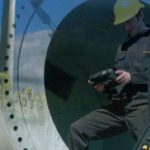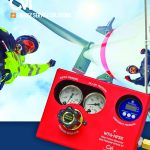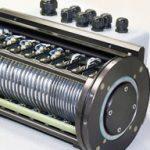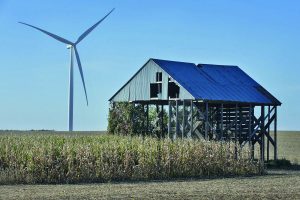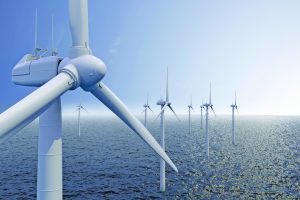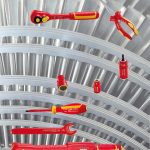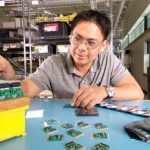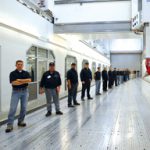When it comes to renewable energy initiatives, HEICO doesn’t just talk the talk. It walks the walk.
The German-based company has not only been manufacturing an innovative wedge-lock washer used in wind turbines, but it has also made great strides over the years to reduce its carbon footprint.
HEICO’s state-of-the-art facility in Germany might be considered a model of sustainability, according to Luke Reed, sales manager, North America. HEICO has built a custom thermal power plant onsite, which also provides power to the company and the surrounding communities. And recently, the company has implemented an application that captures heat waste from its coating process and uses it to warm the water for manufacturing. The company also has a solar-power array on its roof that provides additional power to the facility. But it doesn’t end there as HEICO is looking into investing in its own wind farm in the near future.
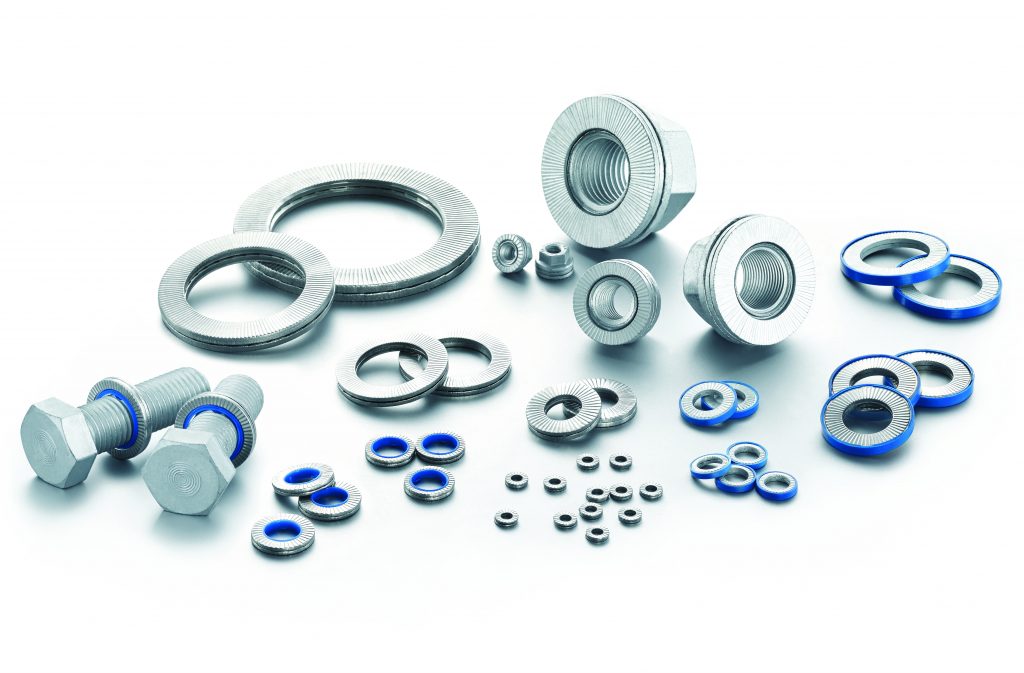
So, to say HEICO has gone “all in” for a sustainable future might be an understatement — so much so, that what the company actually does for the wind-energy industry might be an asterisk on its resume, but it is an extremely important asterisk.
“As far as the wedge lock washer goes — the HEICO-LOCK line — it is a marvel of modern engineering,” Reed said.
Critical Joints
Thousands of bolted joints in a wind-tower nacelle all work in tandem to piece the machinery together; many of those are deemed critical to the safety and performance of the asset, according to Reed.
“The failure of a single bolt can quickly spread to the adjacent bolts,” he said. “On one end you’ve got, due to a bolt failure, power generation stoppages, and on the other end you’ve got huge safety potentials with capital costs and ceasing of revenue, but more importantly, ceasing of power production. That can even lead to — and fortunately, it’s rare —even injury and loss of life. So, we really take the wind category very seriously because the critical bolted joints there are certainly critical for a good reason.”
Wind turbines generate a lot of vibrations, and a lot of different loads can affect the bolted joints securing the clamped parts, according to Reed. The wedge lock washer is designed to address these types of potential problems in a functioning wind turbine.
“They simply really, really work well to address the concerns that these design engineers have on a day-to-day basis,” he said.
How it Works
The wedge lock washer is a two-part washer system based on the fundamentals of tension, according to Reed. The washer is designed around a certain geometry on the inside surface that, once the bolt is torqued down, the ramps — or wedges — engage.
“Whenever that bolted joint is being influenced, say by intense vibration, in a traditional sense, it wants to start rotating and come loose,” he said. “Those wedges are angled in a way that prevents that bolt from turning. Basically, it’s impossible for that bolt to come loose. And, in fact, as it’s being hit by very high shock loads, for example, as the bolt wants to turn, it’s actually getting tighter. It’s a fascinating and very elegant solution.”
This ability to actually self-tighten can be a critical function when bolts are needed in tight spaces — a situation that is very common within a turbine nacelle, according to Reed. In addition to its innovative washer, HEICO also has developed the HEICO-TEC mechanical tensioner to aid in tightening hard-to-get-at bolts.
“Today, you have hydraulic and pneumatic type tensioners — big tools that certainly have their place — but what happens is, in areas of confined spaces where you’re doing a repair job or a refurbishment, it’s really hard sometimes to get these torque tools to bear onto a bolted joint,” he said. “For example, with a two-inch bolt, you’ve got a relatively high torque value to tighten that bolt correctly. With the HEICO-TEC mechanical tensioner, it breaks that large torque value down into multiple smaller torque values that you can operate with just a simple torque wrench. And if an operator can get a handhold into that very confined space, he can tighten the largest bolt that a wind turbine could potentially have.”
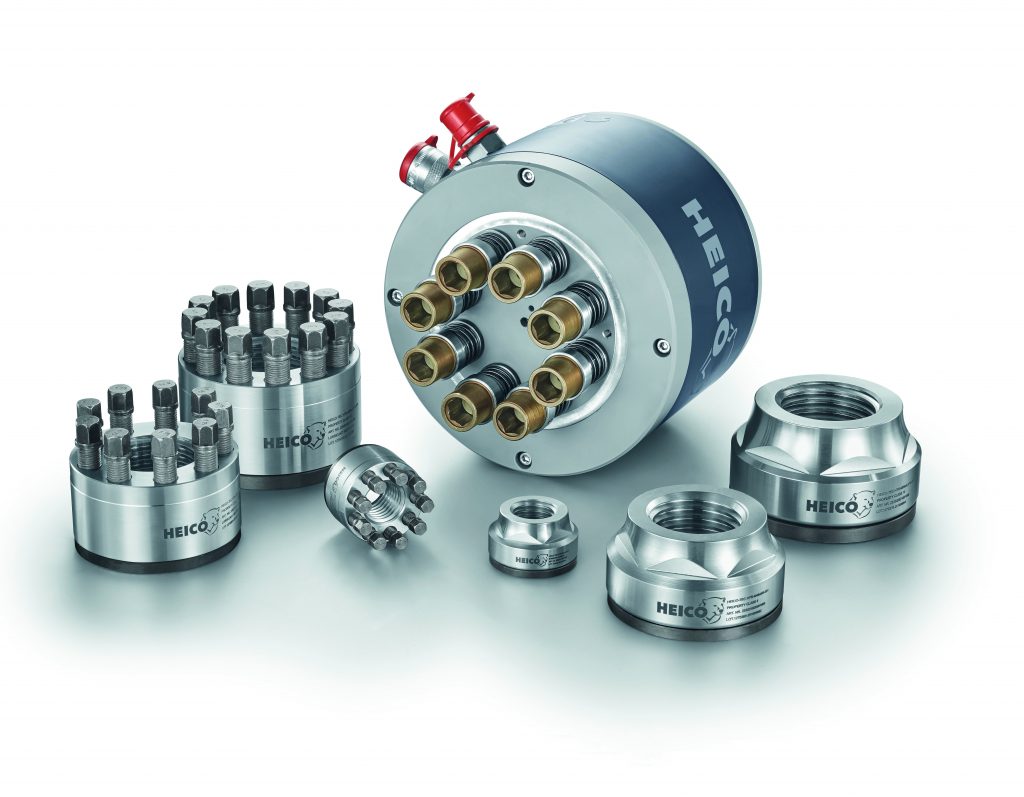
Industry Takes Notice
HEICO’s wind products have certainly caught the eye of OEMs in the 13 years the company has offered them, according to Reed.
“The influence and the proficiency of our engineering staff in Germany has grown to the point where it’s not uncommon for an OEM or an owner-operator to actually reach out to us looking for some guidance on bolted joint issues or bolted joint designs for future applications,” he said.
The overall industry interest in HEICO’s product line comes down to the fundamental idea that drives the company: quality you can depend on, according to Reed.
“That means the fasteners or any component of a wind turbine we make simply needs to perform as it was designed, and it needs to be entirely dependable, and there can be no exceptions,” he said. “There’s just too much at stake.”
That, Reed said, boils down to common virtues from the HEICO Group that can be seen from the owner through senior managers all the way down to apprentices just starting their HEICO journey. Those virtues are innovation, discipline, reliability, punctuality, precision, and efficiency.
“Those are virtues that are often discussed, and we base a lot of our outlook on doing business and dealing not only with our customers in the industry, but dealing with our people,” he said. “I think our customers who have spent time with us and have visited our location in Germany all tend to get that pretty quickly and reward us due to that increase in confidence.”
And those inherent virtues circle back to how HEICO is involved in sustainability from top to bottom, according to Reed.
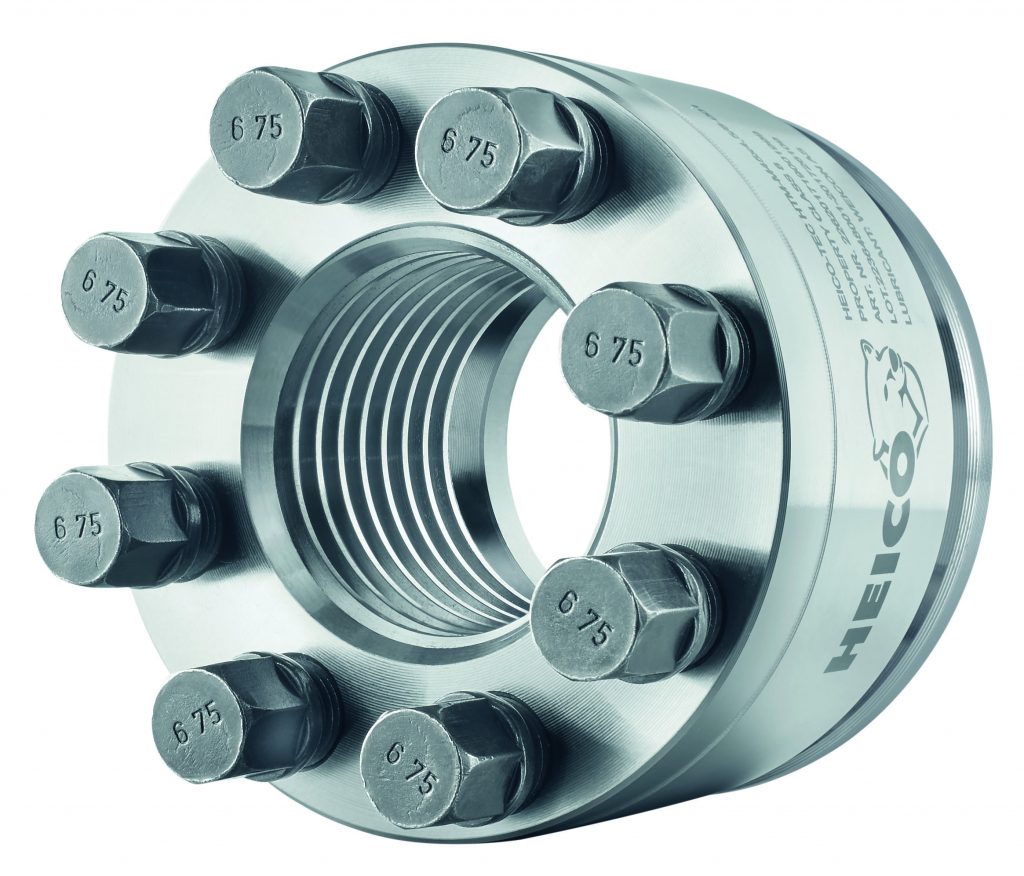
“You hear sustainability, and a lot of times it’s kind of a check-the-block statement; it’s not backed up by practice,” he said. “But for the HEICO Group, this is certainly a guiding principle, and not only in terms of the markets that we serve — wind being this great example — but in terms of energy use and conservation and efficient manufacturing practices.”
123-Year History
Although HEICO has only been involved with the wind industry since 2010, the family-owned company — currently run by Jan Heimann — has been around for 123 years in western Germany where it began as a cold-forming parts manufacturer. In the beginning, HEICO was primarily involved in agricultural implements, food production, and parts for furniture manufacturing.
Over the last century, the automotive industry fueled a lot of HEICO’s growth making cold-formed parts. As the company grew and built up its engineering prowess in terms of quality manufacturing, processes, and design, HEICO obtained its ISO 9001 certified manufacturing status in the 1990s. Shortly after that, HEICO received its IATF 16949 quality certificate, which offered a lot of parallels with the APQP4Wind quality process. And most recently, HEICO acquired its ISO 14001 certification.
In 2010, a globally recognized fastener supplier came to HEICO, asking if the company could make a bolt securing element. That eventually evolved into the wedge lock washer.
“So, when we first developed the HEICO-LOCK wedge lock washer series of products, the demand was immediately there — it took off; it really took off incredibly well,” Reed said. “At the beginning, our focus in terms of industrial categories was the rail industry, both on the ground and up in the cars, and then in power generation markets.”
Industry Expansion
The product exposure quickly expanded to other industries, and then, shortly thereafter, the HEICO-TEC mechanical tensioning line was developed.
“Today, at HEICO, we’ve got 14 company-owned subsidiaries around the world,” Reed said. “And the North American subsidiary here in Hickory, North Carolina, was started in 1997. We don’t manufacture anything here, but we do the sales and engineering and inventory support to our customer base.”
Worldwide locations coupled with 123 years of expertise have put HEICO in a unique position to take on any challenges the company’s customers may throw its way, according to Reed.
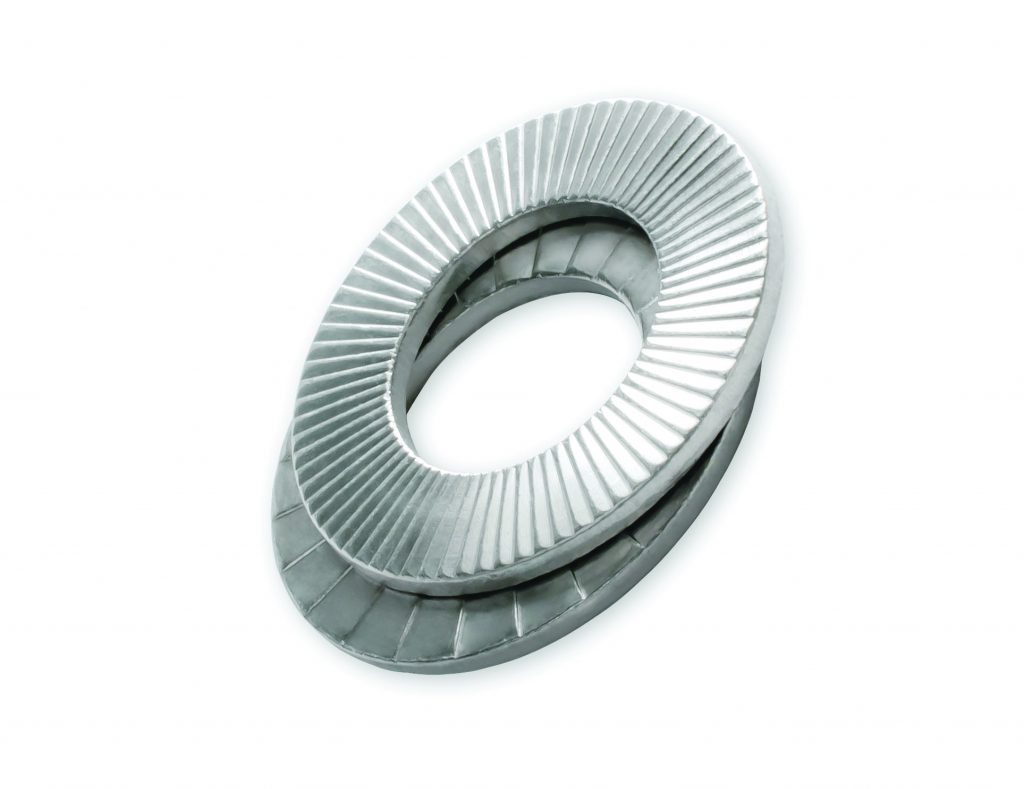
“Our engineering know-how has reached a point where we’ve got an extremely robust and innovative engineering staff in Germany; these guys live to be presented with a problem or a potential issue with a future design,” he said. We’ve got a lot of smart and dedicated engineers both at the beginning of their careers as well as senior veterans who have been doing this for many, many decades.
So, when a customer comes to us, the collaborative spirit that HEICO has is apparent. From engineering, quality, manufacturing, sales, marketing, and commercial — all these different departments — if you were walking the halls of HEICO Group today in Germany, the collaborative spirit that we have with finding solutions to a customer’s bolted joint situation would just jump out at you. At the end of the day, we always stress: Bring us your situation, and let us improve it.”
As the wind sector continues to grow and mature, especially offshore, Reed said HEICO will continue to offer its innovative technology wherever it may be needed.
“The driving factor is corrosion and longevity; a bolt and a nut and any securing elements you use simply have to maintain a given requirement in terms of corrosion resistance; a critical bolted joint on a wind turbine can’t fail,” he said.
“And a bolted joint that’s secured with a HEICO-LOCK wedge lock washer simply cannot fail. That’s something that we’re very proud of.”
More info www.heico-group.com



